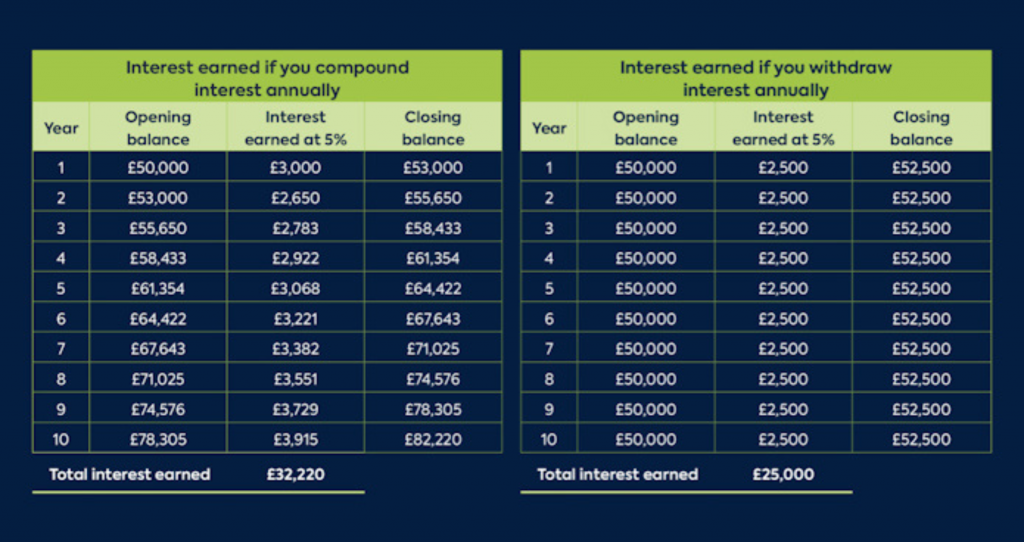We recognise that this can be a difficult concept to get your head around and, let’s face it, may not sound like the most exciting subject. However, compound interest can make a big difference to the value of your savings over time.
When you earn interest on your savings, it is either deposited into a separate account if you wish to use it as income, or it remains in the same account.
If you leave the interest you earn in your savings account, instead of moving it, then the next time you earn interest you not only earn it on your original savings amount, but also on the interest you have accrued. In this way, your interest is compounded.
Compound interest can have a significant impact in savings. In a TEDx talk, co-founder of financial education charity RedStart, Rob Gardner, talks about the importance of compound interest and teaching people from a young age about making the most of their money. It’s an interesting listen. In an article Rob Gardener, Co-founder of RedStart claims that
By saving £5.50 a day for your child until they are 10 and investing it wisely, compound interest could help grow this pot to one million pounds by the time they are 65.
While it may be hard to comprehend how just a few pounds in savings a day could result in such a large amount, let’s look at a simple example that may help to explain how it all works. Basically, the higher the number of compounding periods, the greater the amount of compound interest.

So in this example for a savings account paying 5% where interest is compounded annually. Over ten years, the saver earns £31,445 in interest. However, if they had chosen to withdraw their interest every year, their total interest earnings would have been £25,000, which is a whooping £6,445 less. Keep in mind that if the saver had made additional payments into their savings account during this time or left their money to accrue compound interest for longer, interest earnings would have been even higher.
Further information on compound interest is available from a number of sources including the Money Helper website.
